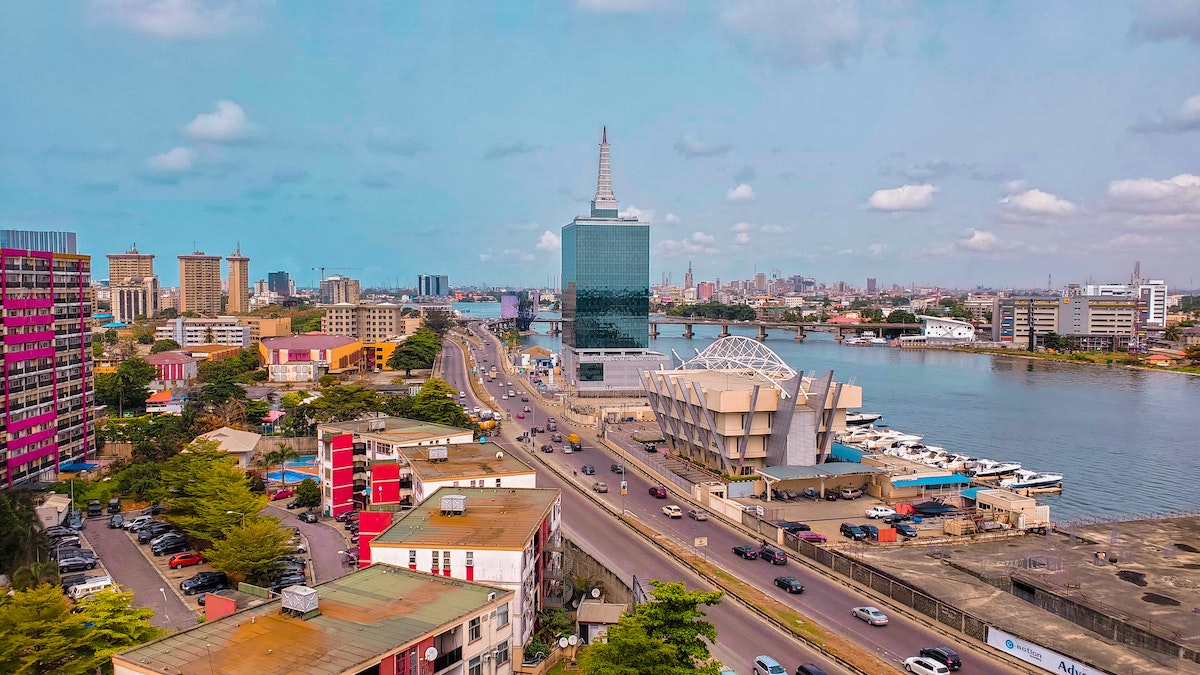A few years ago, I sat down in the back of a conference room in Nairobi, Kenya to hear Femi Osunnuyi teach. Battling fatigue from jet lag and a busy day, I was completely unprepared for the experience of sitting under Femi’s teaching. This Nigerian church planter passionately spoke about Christ and powerfully exposited his text. I was captivated. A raging fire could not have stolen my attention away from his message.
I have the greatest respect for my Nigerian friend and recently met with him through Zoom to catch up and talk about church planting. It’s my great privilege to brag about God’s amazing grace toward Femi and his church in Lagos, Nigeria.
The Necessity of Theological Education
Femi became a Christian during his university days in Nigeria. In 2007, he moved to the UK to pursue graduate studies and also began teaching the Bible every weekend. The Bible study grew over the several years it took to complete his master’s and doctorate degrees. In fact, it took him an extra year to graduate because he was so focused on his growing Bible study group!
Despite earning a Ph.D. in electrical engineering, Femi realized God was calling him to be a pastor. He was convinced of the role of church planting in changing a place spiritually, socially, and culturally. But this highly educated man knew he had much to learn about being a church planter. He pursued some training through Redeemer City to City, participated in online theological education, and read everything he could to prepare for the ministry.
Theological education is not optional. If you’re going to be a pastor, you must be theologically trained. Whether that is formal or informal is another issue—the Bible is filled with informally trained pastors. - Femi Osunnuyi Click To Tweet“Theological education is not optional,” Femi says. “If you’re going to be a pastor, you must be theologically trained. Whether that is formal or informal is another issue—the Bible is filled with informally trained pastors.”
Femi didn’t allow his lack of formal training to stop him from pursuing Acts 29 membership. He worked hard and passed his assessment while in the UK. In 2015, Femi and his wife returned to Nigeria to plant a church in his hometown of Lagos, Africa’s largest city.
The Encouragement of God’s Church
In 2016, they began meeting with a core team, and a year later, they launched City Church Lagos. By God’s grace, they’ve experienced steady growth and people have matured in the faith. They’ve prioritized teaching, learning, community, and leadership development, and hope to plant their first church—in a poor, urban area of Lagos—this year!
Femi’s passion for theological education and training is embedded in the DNA of City Church Lagos. Formal training is cost-prohibitive for many aspiring planters, and often they’ll plant whether trained or not. So City Church is stepping in with excellent training both in theology and practical church planting. One exciting way they’re doing this is through their Academy. This initiative is currently training 12 men for the pastorate. They’re also training future church planters through a 2-year cohort and a 3-year residency program, all while hosting conferences, too.
Today, City Church Lagos is the only Acts 29 church in Nigeria. But this will not always be true. Click To Tweet“The pandemic has definitely decreased our momentum,” Femi says. “For example, the church we hope to plant out of City Church this year was supposed to have launched last year.” Femi also says they’re learning how much presence impacts commitment. “One of the measures of commitment is giving. People are giving less due to economic difficulties or an increased desire to build up their savings in uncertain times. Also, less presence equals less accountability, which escalates sin. So our church discipline has increased during the pandemic.”
But despite these challenges, Femi says, “I’m mostly encouraged by our growth in the gospel and how we’re developing leaders. We’re learning to use media in innovative ways and we’re being more intentional to use this tool to reach the lost. God has used our small resources to help many needy people inside and outside the church, especially during COVID. And our Academy hasn’t missed a beat, in spite of the pandemic. In many ways, we feel we punch above our weight, and that’s because of God’s absolute graciousness to us.”
The Pioneering Work of Church Planting
Despite his church’s slow and steady success over the past four years, Femi says he underestimated how much of a pioneering work planting a gospel-centered church would be. Even though Nigeria has tens of thousands of churches already, planting churches that explicitly place the gospel at the center of life and ministry is still pioneering work. He says, “It’s hard to find like-minded pastors to engage with. Loneliness is a huge challenge.” This is one of the reasons Femi is so grateful to be part of the diverse, global community of Acts 29 church planters passionate about planting healthy, multiplying churches.
In many ways, we feel we punch above our weight, and that’s because of God’s absolute graciousness to us. - Femi Osunnuyi Click To TweetFemi says there are many ways City Church Lagos has benefited from membership in Acts 29. “A lot of the pandemic relief we were able to provide was due to our partnership with Church in Hard Places. Also, some of my closest ministry friends and mentors are from Acts 29. They are a great source of support and encouragement. And our partnership with Acts 29 has helped our church with sustainability.”
“Every Acts 29 church can do more together than they could do on their own,” he says. “The mutual encouragement and collaborative efforts cause us all to punch above our weight.”
Today, City Church Lagos is the only Acts 29 church in Nigeria. But this will not always be true. As God continues to build his church, Femi is committed to the slow work of building the firm foundation needed to have a sustainable church for the great glory of Jesus Christ.










